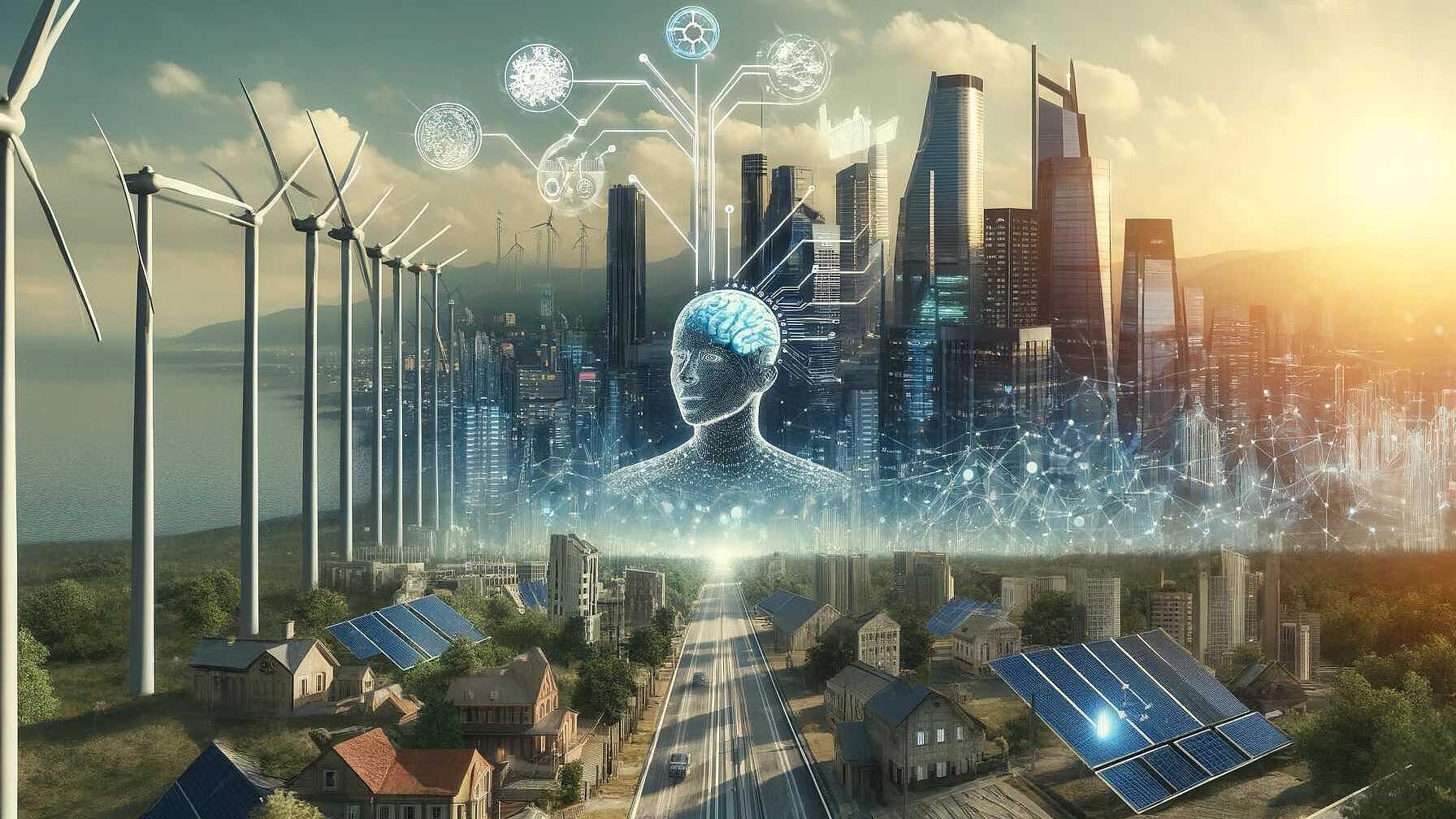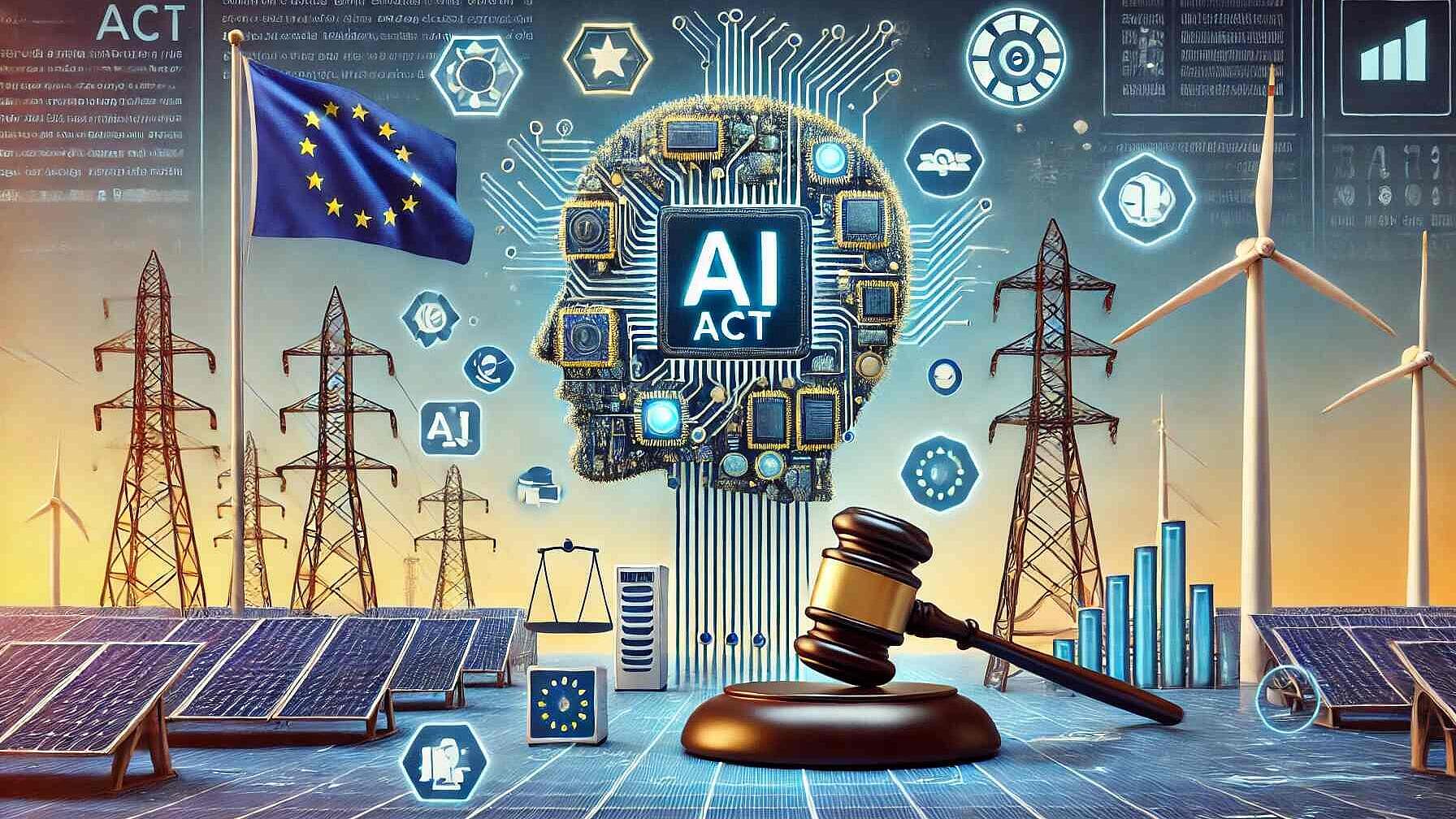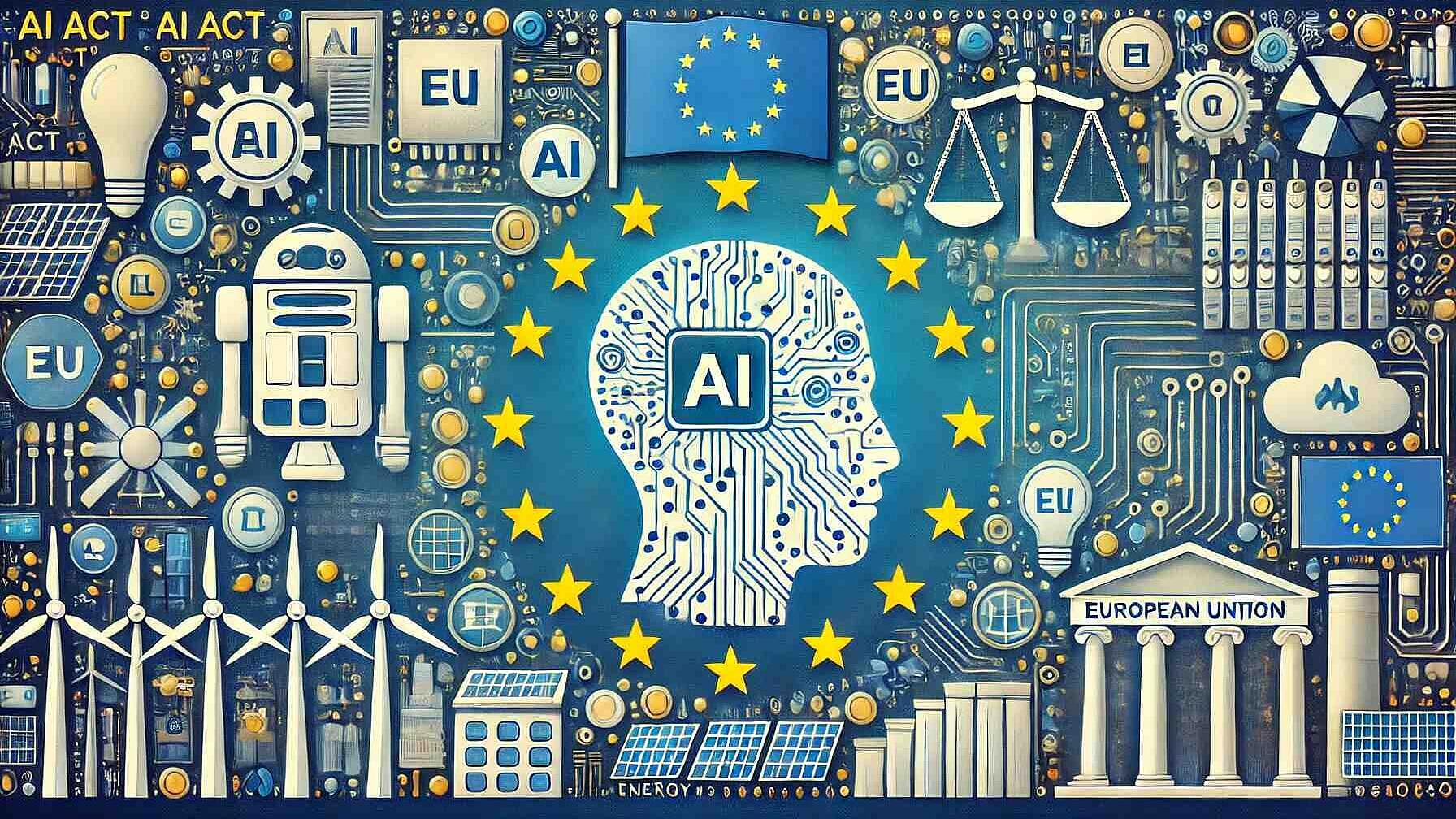 Finance & Economics
Finance & EconomicsThe Economic Impact of AI on Energy Transition: Financial Institutions at the Forefront of a Green Revolution
Resumo
Artificial Intelligence (AI) significantly impacts the energy sector by enhancing renewable integration, grid optimization, predictive maintenance, energy efficiency, and energy markets. AI algorithms enable better predictions and management of demand fluctuations, optimize grid stability, and energy distribution while reducing transmission losses. AI-driven predictive maintenance anticipates equipment failures, thus reducing costs and prolonging asset life. In buildings, transportation, and industry, AI identifies efficiencies to lower energy use and greenhouse gas emissions. Energy trading benefits from AI by leveraging market and weather data to improve renewable energy revenue. Furthermore, AI accelerates R&D in energy storage and generation, resulting in cost reductions and efficiency improvements.
The economic implications include substantial cost savings, increased investment in AI for energy (reaching $4.5 billion in 2023), and new job opportunities in specialized tech fields. Financial institutions see AI as a way to identify investment opportunities and manage risks, despite regulatory, cybersecurity, and ethical challenges. Overall, AI has the potential to fundamentally advance the energy transition, with financial institutions playing a critical role in this shift. References to Bloomberg New Energy Finance, World Economic Forum, and the International Energy Agency support these points.
Artigo aberto completo
The Economic Impact of AI on Energy Transition: Financial Institutions at the Forefront of a Green Revolution
The global shift towards sustainable energy sources is one of the defining challenges of our time. While renewable technologies like solar and wind power have made significant strides, their integration into existing infrastructure and the optimization of energy systems remain complex tasks. This is where Artificial Intelligence (AI) emerges as a game-changer, offering unprecedented opportunities to accelerate the energy transition.
Unleashing AI's Potential Across the Energy Landscape
- Grid Optimization: AI algorithms can analyze vast amounts of data from smart meters, weather patterns, and grid infrastructure to optimize energy distribution, predict demand fluctuations, and integrate renewable energy sources seamlessly. This ensures grid stability, reduces transmission losses, and enables more efficient use of renewable energy.
- Predictive Maintenance: AI-powered predictive maintenance can analyze sensor data from wind turbines, solar panels, and other energy assets to identify potential failures before they occur. This proactive approach minimizes downtime, reduces maintenance costs, and maximizes the lifespan of renewable energy infrastructure.
- Energy Efficiency: AI can optimize energy consumption in buildings, industrial processes, and transportation systems by identifying inefficiencies and recommending tailored solutions. This not only reduces energy costs but also lowers greenhouse gas emissions.
- Energy Trading and Markets: AI algorithms can analyze market trends, weather patterns, and grid conditions to optimize energy trading decisions. This can help renewable energy producers maximize their revenue and contribute to a more stable and efficient energy market.
- Research and Development: AI is accelerating the discovery and development of new materials, catalysts, and energy storage technologies. This can lead to breakthroughs in renewable energy generation, storage, and distribution, ultimately driving down costs and improving efficiency.
The Economics of AI-Driven Energy Transition
The economic benefits of AI in the energy sector are significant and far-reaching:
- Cost Reduction: AI can optimize operations, reduce maintenance costs, and improve energy efficiency, leading to substantial cost savings for energy producers, consumers, and grid operators.
- Increased Investment: The potential for cost reduction and improved efficiency is attracting increased investment in AI-powered energy solutions. According to Bloomberg New Energy Finance, global investment in AI for energy reached $4.5 billion in 2023 and is expected to grow exponentially in the coming years.
- Job Creation: The development and deployment of AI technologies in the energy sector are creating new job opportunities in data science, software engineering, and other specialized fields.
Financial Institutions: Opportunities and Risks
Financial institutions are increasingly recognizing the potential of AI to accelerate the energy transition and are investing in AI-powered energy startups and projects. However, they are also aware of the risks associated with this rapidly evolving technology:
- Opportunities: AI can help financial institutions identify lucrative investment opportunities in renewable energy projects, optimize energy trading portfolios, and manage risk more effectively.
- Risks: The rapid pace of AI development poses challenges in terms of regulation, cybersecurity, and ethical considerations. Financial institutions need to carefully assess these risks and develop strategies to mitigate them.
In Conclusion
AI is emerging as a powerful tool for accelerating the global energy transition. Its ability to optimize energy systems, improve efficiency, and reduce costs is transforming the energy landscape. While challenges remain, the potential benefits of AI in the energy sector are immense, and financial institutions are well-positioned to play a key role in driving this transformation forward.
References
- Bloomberg New Energy Finance: https://about.bnef.com/
- World Economic Forum: https://www.weforum.org/publications/series/fostering-effective-energy-transition/
- International Energy Agency: https://www.iea.org/
Further References
Top 10 websites for Global Economics with a focus on Energy:
- International Energy Agency (IEA): The IEA provides comprehensive data, analysis, and policy recommendations on all aspects of energy markets, including oil, gas, coal, renewables, and electricity.
- U.S. Energy Information Administration (EIA): The EIA offers detailed statistics and analysis on U.S. and global energy production, consumption, prices, and technology.
- World Bank: The World Bank publishes research and data on energy access, investment, and sustainable development in emerging markets.
- BP Statistical Review of World Energy: This annual report provides a comprehensive overview of global energy production, consumption, and trade across all major fuels.
- Bloomberg New Energy Finance (BNEF): BNEF delivers in-depth research and analysis on clean energy investment, technology trends, and market forecasts.
- Financial Times: The FT provides comprehensive news and analysis on global economics, financial markets, and energy policy.
- The Economist: The Economist offers insightful analysis and commentary on global economic trends, including the impact of energy markets on the world economy.
- OilPrice.com: OilPrice.com provides up-to-date news, analysis, and commentary on oil and gas markets, including geopolitical developments and price forecasts.
- World Economic Forum (WEF): The WEF publishes reports and analysis on the global energy transition, focusing on the role of technology, policy, and investment in shaping the future of energy.
- Organization for Economic Co-operation and Development (OECD): The OECD provides data and analysis on energy policy, markets, and environmental impacts across its member countries.
.........
Comment: We are currently in an experimental phase concerning the use of AI. While we used own programmed algorithms as well as external services for many years incl transformer models, we are now assessing application areas for the new and huge LLMs (ChatGPT, Claude, Gemini) in assisting on information research, gathering and drafting as well as various other domains. According to our AI policy, we will always make transparent where and how we use this models. This article is "AI assisted" which we define as "AI provides initial drafts, ideas, or specific sections, which are then refined and edited by humans."


